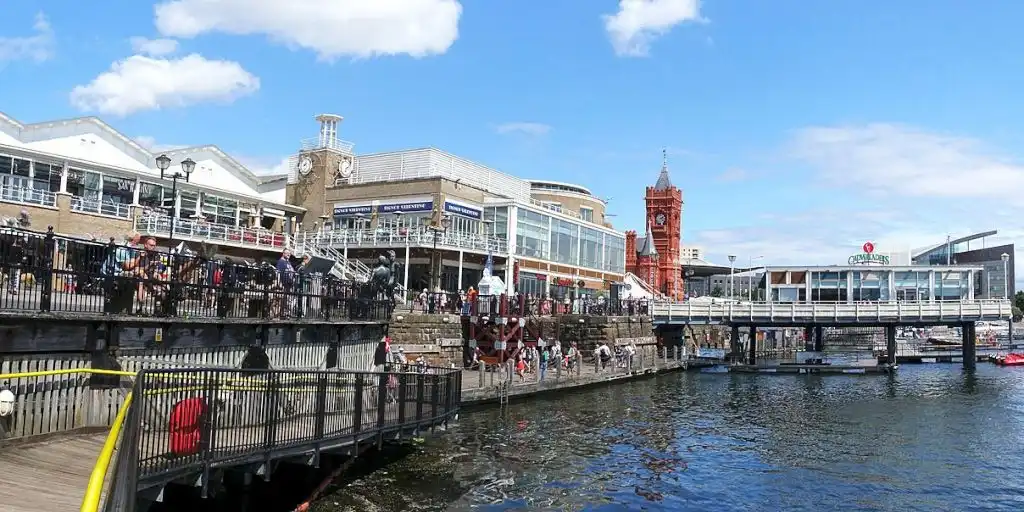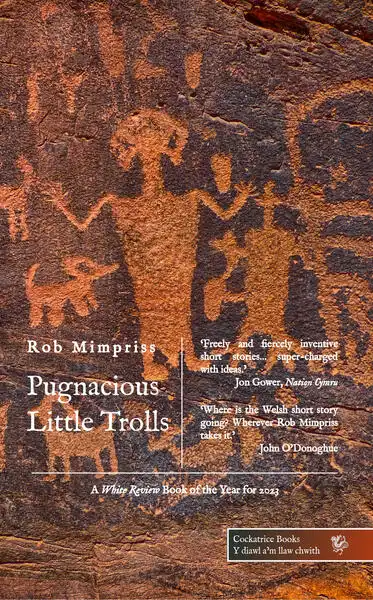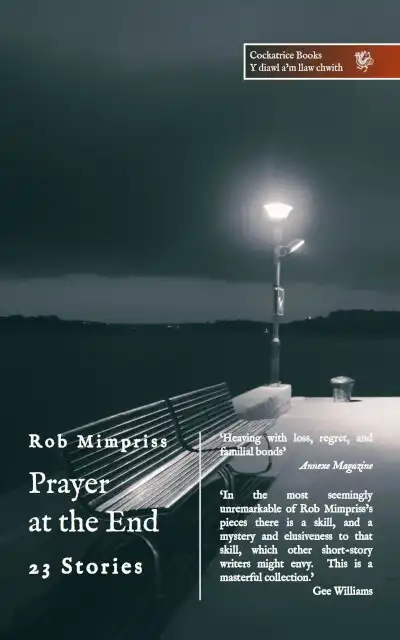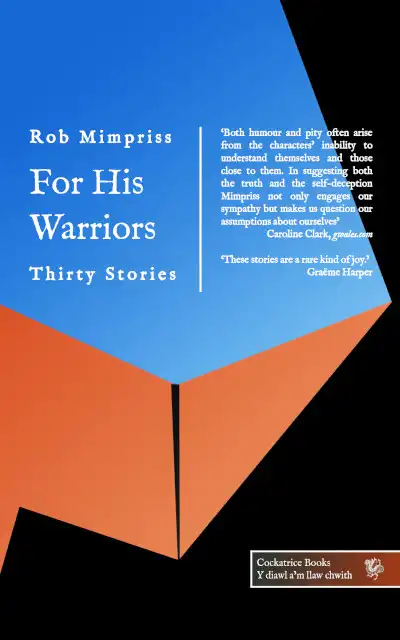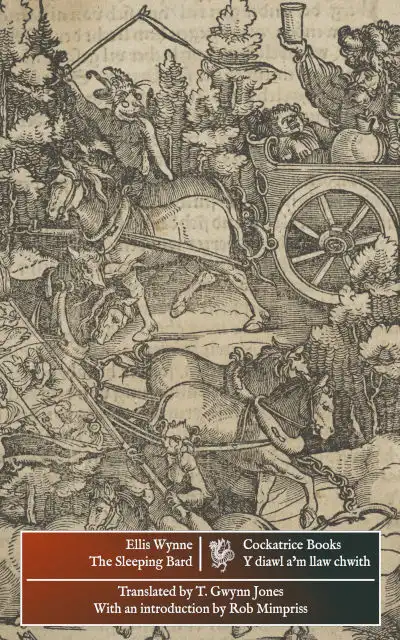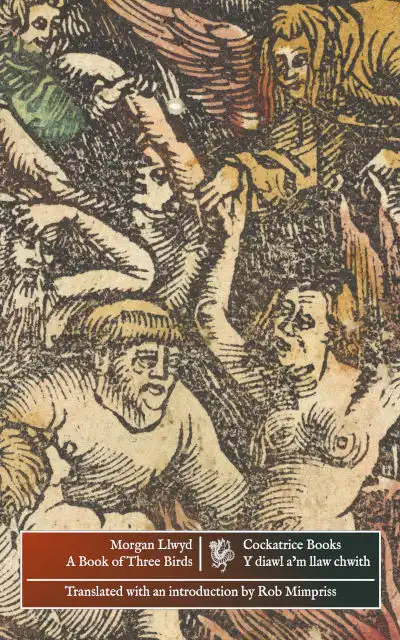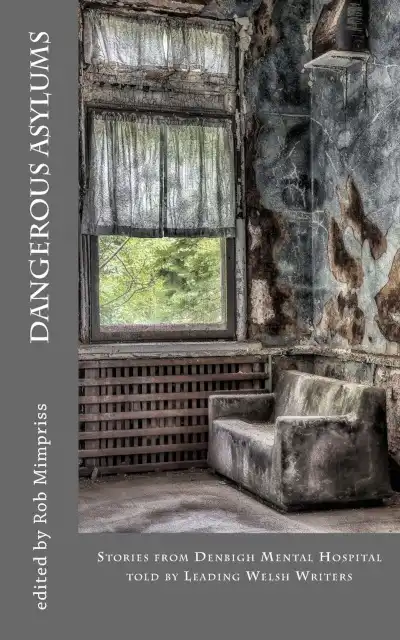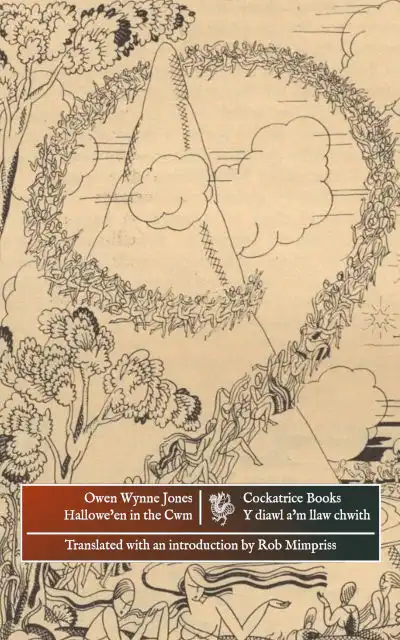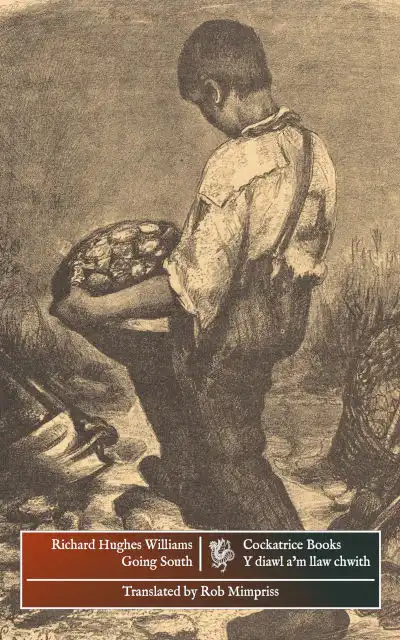When Glyn Pursglove was editor of The Swansea Review and I was an undergraduate student at Swansea University in the early 1990s, he generously published a number of my early short stories. ‘The Winter Child’ is one of them.
The Mother
I was only out of the room for a minute. I had gone to put a coin in the
metre, and it was the scream that summoned me back. My son was standing
by the kitchen sink, and he turned to look at me as I entered the room.
He was holding a knife in one hand, and something ragged and pink in the
other. He opened his mouth as though to speak, and a great stream of
blood welled out onto his chin.
When I realised what he had done I nearly fainted. My son had cut his
own tongue out.
‘Idiot!’ I screamed, and carried him to the car. He was choking on his
own blood, and I had to slap him to make him stop crying. The hospital
was nine miles away. I revved the engine to make it get through the
snow, and I was prepared to break the speed limit getting there.
The car flew over the ice; I could barely control it. I looked over my
shoulder whenever I dared. My son had fainted with the pain, and I could
see the lake of dark blood that he lay in. There seemed no end to it.
Casualty was open. I dragged my son out of the car by his legs, and
dropped him on the floor and he woke up screaming. I was screaming as
well when we went into casualty. Someone hit a panic button, and I was
surrounded by doctors. They laid him down on a bed and looked at his
mouth, and a doctor said: ‘What have you done to him?’ I shook my head
feeling utterly helpless, and a nurse took me into another room.
They gave me hot sweet tea for the shock, and I huddled in my anorak,
for the room felt so cold. A doctor came in from the ward and said:
‘He’ll never speak again, but he’ll live.’ A series of people asked me
questions. I told them what had happened, and then I had hysterics. An
official said: ‘You’d been beating him hadn’t you.’ I knew they had
found the bruises, and nodded.
‘When they’ve finished with him in hospital they’ll hand him over to us.
There may be charges.’ I nodded, and huddled against the cold. When I
asked if I could see him the official said, ‘No.’
They treated me for shock and I was free to go home. I was free to drive
back to the empty house with my son’s red tongue in the kitchen. I
thought about the fact that he would never speak again. I wondered if he
would regret what he had done. It had been so horribly logical. He had
not said a word since the inquest.
The Child
When I went into silence and this war began, she loaded up the car and
we came to this place. I was lying in bed, alone but not asleep, when
she came into the bed room and turned on the light. She was fully
dressed.
She laid out some clothes and told me to dress, and stayed with me in
the room as I did so, packing my other clothes into a sports bag. When I
had finished I crouched at the head of the bed and watched her. She made
me stand up, and stripped the bed to the mattress with a violent tug.
‘There’s no room in the car for your things,’ she told me, and started
to empty the rest of the room into a rubbish bag. ‘Now we can go,’ she
said.
She locked the door of the flat behind us, and posted the key through
the letter box. We walked down the flight of stairs to the bottom, she
with a suit case and I with the bag. When we left the building she held
me by the wrist. She made me get into the car first, shutting the door
behind me. Then she got in on the other side, and we drove away.
As we drove through the city she told me nothing, and I kept my silence.
We had left Swansea behind us, and were driving through the countryside,
when it started to snow. My mother did not stop. The snow was blowing
against the wind screen, and she turned on the wipers to keep it clear.
I was cold and tired and tried to sleep, hugging my bare legs against my
arms and resting my chin on my knees. I dozed off, and she woke me up
again. ‘I don’t want you sleeping quite yet,’ she said.
Nothing happened for a long time after that. Later I fell asleep again,
and she woke me up with a cuff on the head. We were driving through
hills that glimmered white in the darkness, and the snow had stopped
falling. I stayed awake for a while, sitting on the seat with my legs
crossed and arms folded, and watched as the white hills went by.
I awoke with a start when the car stopped. I realised my mother had
allowed me to sleep. It was early morning, and we were parked outside a
house. I yawned and moaned, and my mother looked across at me suddenly.
‘Say something, Damian,’ she said.
My reply was the snow and silence. My mother sighed, took the cases out
of the car, and went inside the house to unpack. She left me in the car.
I stayed, because I need to rest, and because there was nowhere else to
go. I sat up in the seat as I was supposed to do, and looked at the wall
of the house and waited. I was cold. My mother appeared in a window and
looked across at me, and just for an instant, she smiled. I looked away.
She came out to fetch me when she had finished. I did not notice until
she opened the door and took hold of my wrist. I climbed out,
unresisting, and we went into the house together. I allowed myself to be
hurried, because of the cold.
Inside, she shut the door. I looked around me, and saw a barely finished
living room. Stairs in front of me went up to the first floor. The house
is big enough for the war that is taking place between us. When I saw
the empty hills through the window, I saw that it will have to be big
enough. There will be no leaving this place until I defeat her.
It is an old farm cottage, made of dry stone. There are three rooms on
the ground floor, and two bed rooms in the roof. My mother sleeps in one
room and I have the other. My room is small and barely furnished, but I
value the quietness it gives me. Without it, I think I would not have a
chance in this war.
From my bed room, I can see the back garden with patches of snow and
bare soil, and behind that I see only the hillside. If there are people
living within a hundred miles of this place, I am not aware of them. I
have not been out of the house since we arrived.
From the moment she shut the door behind us I was in her hands. We were
still at war, but she had all I needed now. So I looked at her to see
what would happen next and she smiled again, the smile I had seen when
she looked out of the window at me sitting in the car. ‘Come on,’ she
said, ‘it’s time to have breakfast.’
So she took me into the kitchen. The room was airless and cold, and the
walls and the window were grey with ash. My mother made me sit at the
kitchen table while I waited. As I sat there, I could feel my limbs
begin to tremble with the cold. My mother lit the gas stove, and started
to cook.
She ate nothing herself. I looked at her again when I had finished what
she gave me, but this time she did not smile back. She was looking at me
steadily, and her blue eyes were making me feel uncomfortable. I went to
stand at the window for a moment, and had another view of the neglected
yard. ‘Well, then,’ she said, ‘I’m taking you up to your bed room now.’
Once again I consented. I was sent first up the narrow stair case, and
my mother followed immediately behind me. ‘Your room is the one on the
left,’ she said. I stopped outside the door, waiting for her leading. I
noticed that there was a lock on this door as well. My mother opened the
door.
I stepped inside the room and looked about me. It was very bare. There
was a bed, a chair, and a wardrobe. The light bulb hung naked from the
ceiling, and the curtain rail was empty. The sports bag lay in one
corner of the room. That was all.
‘We can leave this house when you’re prepared to use your voice,
Damian,’ said my mother. ‘You’re keeping us both from home.’ Then she
went downstairs again, but this time I did not follow her. Instead I sat
on the chair and listened, and my ears were surprised by the silence.
It was my father who taught me to listen to the silence, but he died
when I was eight years old. After his death there was an inquest, and
that was the last time that I opened my mouth.
My father was Norwegian, but he had Sami blood in him. He was weaker
than my mother was, and he cut his own wrists in the bath one evening.
They had been arguing again, when the bed room door opened and my father
came out. I saw him on the landing looking very pale. ‘It’s all right,
son,’ he said, ‘I’m going back to sea.’ There was a code between us for
everything we did. He had his dressing gown over his arm and I thought I
knew what he meant, so I smiled. He kissed me, then, and went into the
bath room and locked the door. He never made a single sound while he was
dying.
My mother had gone to bed already, and did not notice until the next
morning. At eight o’clock the door was still locked, and all inside was
still silent. I woke up to hear her banging on the door trying to make
him come out; but he wouldn’t reply. ‘He’s got himself stone drunk
again,’ she said to me nastily, and called the man from next door to
charge the door down. We went in and found him lying dead in the water.
It was because I had seen this, that they made me come to the inquest.
At the inquest I tried to tell them that my mother had killed my father
by driving him to suicide, but they didn’t believe me. They decided
something must have happened in the war to drive him mad. Then they gave
my mother a pension.
I wake up in my chair. I am cold, stiff and hungry, and I knock the
chair to the ground standing up. I lean against the window taking the
cold of the glass to my forehead. The sky outside is darker now; it is
late.
The silence and I are almost merging. The coldness in my forehead is
spreading through my limbs. My mind, like the sky outside, is growing
darker. My mother is shouting for several minutes before I understand
what it means.
I turn in some bewilderment, and look about me. The room is quite dark
now. The door still stands closed. I hear feet upon the stair, and the
door bursts open. My mother takes hold of my wrists with one arm, and
delivers me a slap on the ear with the other.
‘I’ve been calling you to tea for the last five minutes!’
We sit at the kitchen table for tea. It is totally dark outside. The
window appears as a panel of black, reflecting my face as I look
outside. The harsh fluorescent light in the room shows up all the grime
and neglect. It shows up the smoke and steam in the air, shows up the
food on the blue check table cloth, and shines off the streaks of grease
on the walls. I am tired, and experiment in eating like a baby, chewing
without closing my lips. Anyone looking in on this room would take us
for a normal family tonight.
I put down my fork. My mother’s eyes meet mine across the table, and she
smiles. She finds this scene so attractive she has forgotten we are at
war. I look away.
‘You can go when you’ve finished, Damian.’ I have finished indeed. I
rise, put my chair under the table, and walk out of the room.
My bed is cold when I climb inside. I turn out the light and lie in the
darkness, listening to the noises made by the house. I can hear very
little. My mother moves angrily about down stairs; I can hear the
crockery shaking. At about eleven o’clock the kitchen door slams. I
tense, expecting a visit. But my mother turns aside to the room next
door, sounding as tired as I have ever heard her. Neither of us have
slept in two days.
The house is completely silent after that. I find myself unable to
sleep. I get up, and go to the window.
The snow is falling. A solid stream of whiteness flows past my window.
It is settling. The ugly bare soil of the flower beds is slowly being
filled in. This process of change is completely silent. But by the
morning, the world will have been transformed.
The snow continues as though unstoppable. It is the quietest, the
strongest force in the world. As the world is frozen my heart is warmed.
I go to bed, warmed by winter.
My mother called him a baby, because of his love for the snow. She
called him childish even in those days, but I never realised she meant
it: not until after the war, when he was on the drink.
I remember the last Christmas he was home on leave. He and I drove out
into the hills together, with a toboggan he had made. It had been his
present to me, and it had kept him in the work shed for almost the week.
The journey took us most of the morning, and we were a very long time
there. We ate lunch in a pub, and we had a snow fight, and then he got
his clothes wet when the ice broke, testing if it was safe for us to
skate on a pond.
We missed supper and came back late, and when my mother met us she was
angry faced. She sent me up to bed with my supper on a tray, and she and
my father argued again. They had argued a lot that Christmas, and he
left for his ship the next day. Never again was he home for Christmas
after that.
The snow from last night has not melted. It lies around the house to
ankle depth, and only the tall forms of the saplings in the garden
penetrate the crust.
My mother is slow to get up this morning. I am glad of this, for I have
wetted my bed. At nine o’clock she appears in her dressing gown looking
tired, looking dangerous.
‘Time to rise and shine, Damian,’ she says. She stands on the threshold
looking at me coldly, and sniffs the air and purses her lips. ‘You’ve
done it again, haven’t you?’ She comes into the room determinedly. The
bed clothes are pulled ruthlessly from above me, so that I lie exposed.
‘Stand up.’ I do as she says. The bottom sheet is wet and my garments
cling to me. Matter-of-factly she reaches forward and pulls at the draw
string, and my trousers fall down to my ankles. ‘Very well, go and
wash,’ she says.
I step out of my trousers and go. When I return from the bath room my
bed has been stripped, and the blankets lie in a heap on the floor. She
turns when I enter and beckons me forward. She is holding the strap. I
kneel down on the floor. I cry out on the first strike; for the others I
am silent. ‘You can get dressed now,’ my mother tells me quietly, and
walks out of the room.
When I go downstairs she is filling the meter. A small pile of coins is
on the floor in front of her, and she sorts through them looking for the
right kind of coin. There is nothing. She mutters, and pulls down the
sheet she has tagged against the wall, and abruptly the room is invaded
with light. It is cold, impersonal light that hurts the eyes. The ground
and the sky are both white. My mother looks out on this world with
displeasure, shudders, draws her dressing gown closer around her, and
says:
‘There’s no way I’m putting up with this cold. You’ll have to go out and
get firewood today.’
The fact has not pleased her. She takes me and leads me up to her room,
stands me by the window and lets me look out. ‘You see that copse.
There’s a path to the copse, on your right outside the garden gate. You
can get firewood from there. And if you’re not back within an hour, I’ll
give you a flaying if you dare come at all.’ Then she takes me down
stairs again, and opens the door. ‘Remember, an hour is all you have.’
And then she slams the door behind me.
I am alone in the snow. I stand on the step I have not seen since
arriving. The ground is covered by perfect snow. I walk carefully to the
gate, sad to spoil it. Once outside the garden, I stop and look about
me. To the left and right is a narrow lane, leading on my left to a
country road. On my right it leads to the copse. High hedges obstruct my
vision. Only from the upstairs window in my mother’s room have I learnt
anything about this place. Then I saw hills and valleys stretching
endlessly before me. A few miles away was a cluster of houses. The road
on my left leads towards it.
I turn left, and plod towards the road. The snow is thick, and my foot
steps do not penetrate. I walk on, listening to the voice of the wind,
and the crump
… crump
… crump
… of my shoes on the snow beneath
me. On the road, I look about me. A robin alights on a nearby tree. The
road stretches before me, gently declining. I decide to walk to the
village.
I walked a long time before reaching the place. I arrived in the main
street, and there was nothing there but a pub and a post office. I stood
on the street, but nobody came. A red sports car pulled up outside the
post office, and a woman got out and went in with her children.
I followed. Inside she was gossiping to the children behind the counter,
and her children were running around and laughing. The woman paid for a
parcel, and turned round. She was wearing tall leather boots and a
scarlet skirt and fur coat, like the pictures of my father’s people. She
called her children, said ‘Hello!’ to me, and left the shop. The moment
to open my mouth came and went. The bell jangled behind her. ‘I’m
closing the shop now, love,’ said the woman. I looked at the toys while
she got ready, and then I went out when she asked me to. The woman’s car
was gone from the street. I heard the door lock behind me, and the sign
was changed from open to closed. I walked round the village and looked
at the houses. Then I turned round and went home.
It is becoming a battle between my mother and me. She’s trying to make
me tell her where I’ve been. It is late, and we are in the kitchen. We
have been here all day, and I am hungry. She is using the strap.
The pain seems hardly to matter now. I am no longer aware of the room
about me, for my mind has been lifted into a great waste of snow.
I know what to do, now, to end the pain. I know what to do when she next
leaves the room, to ensure that my silence is unbroken forever.
I know how to win the war between us.
The Mother
‘He’s no longer at risk,’ I told the official. ‘He’s safe with me now;
he’s no longer in danger.’ The woman was looking across at me gravely,
and I could hear my voice rise as I tried to get through to her. ‘I’ll
do whatever the courts decide, but I want my son.’ The woman stared
sadly down at her papers, and I could see I would never convince these
people. ‘We’re considering charges of cruelty,’ she said. ‘The boy has
suffered enough in your care. I don’t think what you want is going to be
possible.’ She looked up from the table as she said this. ‘He’s been
entrusted to us to protect him from you.’ I wondered how she could make
it so bland. ‘Tell me how he is,’ I said. I was wondering if she even
knew him.
‘We’re teaching him sign language. He doesn’t really listen.’ ‘What’s
going to happen to him?’ I asked. The woman looked down at the table
again, and shrugged her shoulders once, to show that this institution
does not know.
It was spring, and above the streets of Cardiff a pure and gentle
sunlight was shining down. When the interview was over I wandered around
in the grounds, for I did not feel ready to go quite yet. It was quiet,
for the children were in doors. Beneath one of the windows of the place,
I stopped and looked at the snow drops. I was staring downwards when a
piece of paper fell silently to the ground beside me.
It was the same room when I went again, but a different woman. She
seemed less willing to discuss my problems than the last one, and I
realised these people were getting impatient.
The woman put the note in her folder when she had read it. I gave a
little shudder, for the note was mine, and the woman herself was shaking
when she looked at me. ‘I’m sorry,’ she said, ‘but there are some things
we can’t allow to be important.’
‘I want to show Damian’s note to the courts,’ I said, but the woman told
me gently that this was not possible. A man was summoned to show me out
of the grounds, and I realised that this was the end of the affair.
The snow drops in the grounds were wilting now. But somewhere in that
great house was my son, watching from the windows, thinking his
thoughts, and keeping the silence that is permanent now. That was the
way he had lived all his life. Had he really meant what he said in the
note?
There are some things that aren’t allowed to be important.

